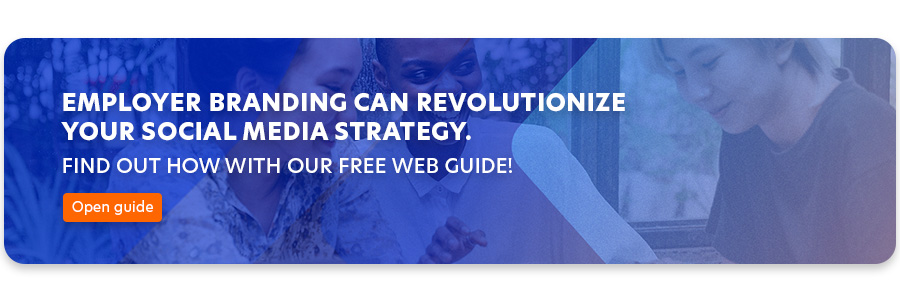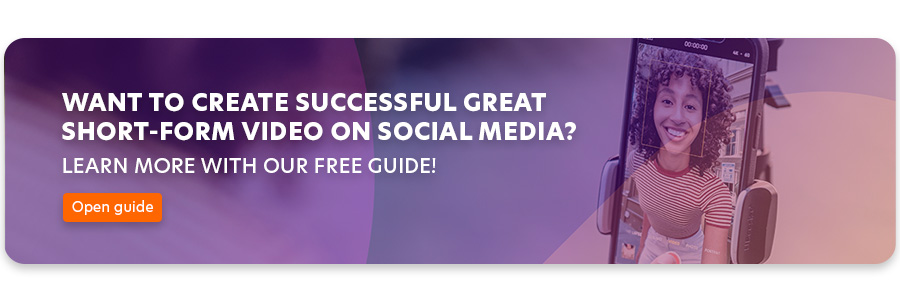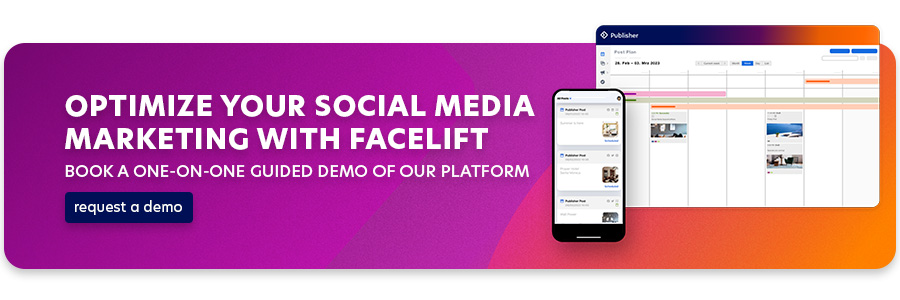Not so long ago, it was unthinkable for CEOs to share personal insights into their lives. But in the digital age, social networks have changed the game. And there are good reasons why CEOs are using their personal profiles to become influencers: It's about credibility, trust and connection.
People want to hear authentic stories and know who is behind the scenes at a company. By sharing their passions, experiences and advice, CEOs can make a real connection with their customers, employees and the public. This personal connection builds trust - one of the most valuable currencies in business. So it's no surprise that more and more CEOs are jumping on the social bandwagon. In this blog post, you'll learn all about the motivations, content ideas and best practices.
Top 5 reasons for CEO Influencing
CEOs can really set off fireworks. They can motivate their employees and inspire founders, businesses and individuals. They can radiate a certain luminosity and infect others with their spark. The best brand ambassadors are always the bosses, aren't they?
CEOs are not only an important part of the business. They are not only senior decision makers, but also opinion leaders, serving as an influencer marketing tool for the company. As often the most visible face of a company, CEOs have a unique opportunity to use their voice to change the reach and perception of their brand. The potential for CEOs to use their personal social media profiles is huge. Here are some of the ways CEOs and their companies can benefit from this strategy.
- Authenticity: Personal insights into a CEO's daily life add a human touch and create authenticity.
- Leadership: CEOs can position themselves as industry experts and share their expertise, leading to higher esteem and reputation.
- Employee retention: By sharing the company's culture and successes, CEOs can foster employee engagement and strengthen the sense of 'we'.
- Customer loyalty: Connecting personally with customers builds loyalty and can lead to stronger customer retention.
- Networking: CEOs can build valuable relationships by networking with other industry leaders to identify new opportunities.
Best practices: Which CEOs are already influencers?
Tim Höttges (Telekom AG), Bernd Montag (Siemens Healthineers) & Christian Klein (SAP) have at least two things in common: they are all influencers.
You can certainly think of global examples of CEO influencers.
- Elon Musk, CEO of Tesla and SpaceX, has become a household name thanks to his prolific use of Twitter X. His posts and tweets cause a stir and inspire his followers. He has regularly influenced share prices with his strong opinions on various companies. He is now CEO of the social network X.
- Jeff Bezos, CEO of Amazon, is also a successful influencer who inspires people with his personal commitment and vision for the company.
- Mark Zuckerberg, co-founder and CEO of Meta (formerly Facebook), is active on several social media platforms. He shares insights into his work, technology interests and philanthropic work. On his Facebook page, he talks about Meta's product development, the future of technology, and his vision for social media. He also discusses social issues such as privacy, artificial intelligence, and education. On Instagram, he gives insights into his personal life, his family and his activities outside the technology industry. Mark Zuckerberg uses social media to connect directly with users, answer questions and encourage discussion. His presence highlights the importance of social media in engaging with the community and providing first-hand information.
- But there are also successful CEO influencers outside the tech industry. In the fashion and beauty industry, Estée Lauder is known for her strong social media presence. She shares insights into the world of beauty, communicates company values and inspires employees and customers alike. On Instagram in particular, she focuses on beauty trends, product innovation and her passion for skincare. This use of social media reinforces her brand message, influences the beauty community and demonstrates the importance of personal relationships and authenticity to brand success.
- Richard Branson, founder of the Virgin Group, actively uses social media to share his adventures, business activities and values. He uses platforms such as LinkedIn to talk about leadership, innovation and his corporate culture. He is passionate about social issues and promoting social change. He creates an authentic connection with his followers through personal stories, motivational videos and participation in dialogue. Branson's social media presence reinforces his personal brand and reflects both his entrepreneurial legacy and his philanthropic aspirations.
- Melinda Gates, co-founder of the Bill & Melinda Gates Foundation, uses her social media reach to highlight important social issues such as global health, education and social justice. In particular, she uses platforms such as Twitter and LinkedIn to provide insightful perspectives on humanitarian efforts related to global health issues. Her posts offer deep insights into the work of the Gates Foundation and highlight the value of equity, education and healthcare.

Where? Top 5 platforms for CEOs
CEOs appear as influencers on a variety of platforms, depending on their individual preferences and audiences. Here is a list of the most popular ones:
- LinkedIn: LinkedIn is one of the most important platforms for CEOs. It allows CEOs to share their professional expertise, thoughts on the industry and insights into running a business. LinkedIn also provides a professional environment to network with other business professionals and increase company visibility.
- X (Twitter): X is a fast-moving platform where CEOs can share news and opinions on current events. As X still primarily hosts politicians and other public figures as content creators, and therefore many journalists are on the platform, there is also a certain news value for CEOs. X is particularly useful for making news in the technology and media industry very popular.
- Instagram: Instagram is great for showing a more personal side. CEOs can share insights into their lifestyle, interests and company culture. The platform is ideal for visually appealing content and authentic storytelling.
- Xing: Xing is particularly popular in Germany and other European countries. Similar to LinkedIn, it focuses on professional networking and employer branding and can be an important platform to make an impact in the DACH region (Germany, Austria, Switzerland).
- TikTok: TikTok has recently taken a broader approach with its 'TikTok For Business' approach, and new demographic data shows that it is not exclusively the platform for younger people. Although TikTok is less used by CEOs, it offers an opportunity to reach a younger audience and share creative content. So far, few successful CEOs have discovered TikTok as a medium for themselves, so there is great first-mover potential here.

The choice of platform depends on the CEO's objectives, industry, target audience and type of message. Many CEOs use a combination of platforms to achieve diverse reach and interaction. It is important to choose platforms carefully and adapt content accordingly to be successful as an influencer.
What content is best for CEOs on social media?
Personal: (emotional, humorous, informative)
- Share personal experiences and challenges.
- Provide insights into everyday life outside of work.
- Show interests and hobbies that reflect the CEO's personality.
- Share industry insights and trends.
- Express thoughts on corporate governance and strategy.
- Celebrate company achievements, milestones and quarterly results.
- Introduce new products or services and explain their benefits.
- Announce offers, discounts or promotions to followers.
- Share customer testimonials and success stories.
- Give advice on career development and professional success.
- Recommend education and training opportunities.
- Offer insights into your own professional development.
- Post updates from travel or business trips.
- Post about special occasions such as company anniversaries or holidays.
- Post small talk topics such as TV series or sports.
- Introduce people and acknowledge their achievements.
- Provide an insight into the company culture and how the team works.
- Show appreciation for the team's work.
Network: (active, collaborative)
- Announce collaborations with other companies or influencers.
- Make recommendations for interesting contacts and networking opportunities.
- Share posts and content from business partners and colleagues.
- Show support for social and environmental initiatives.
- Document participation in charity and fundraising events.
- Raising social issues and encouraging discussion.
- Encourage followers to interact, for example through polls, questions or discussions.
- Share inspirational quotes and motivational messages to encourage followers.
- Announce live events or webinars and invite people to attend.
Bottom line: CEOs make an impact on social media.
- At a time when social media has fundamentally changed the way we communicate and do business, CEOs can play an important role as influencers. By using their personal profiles to provide insight, share knowledge and make connections, CEOs can position not only their companies but themselves as trusted and influential figures.
- Does this mean that a CEO needs to have a social media presence? While we believe this will be an integral part of CEO performance for the foreseeable future, many CEOs still belong to a generation that grew up with analogue methods and relied on traditional methods of communication.
- Any manager who is uncomfortable with social media should consider leaving it alone, or at least handing it over to trusted PR hands. Otherwise, there is a risk that corporate communications will generate unwanted feedback.
Last but not least
Most executives and CEOs shy away from the time it takes to actively manage and create social media content. But there is no reason to take on this task yourself. There are trained agencies or long-term employees who know exactly what they are talking about.
Second objection? Where is my privacy if I give access to my accounts? With Facelift's social media management solution, you can set very granular permissions so that, for example, no direct messages can be seen. Still not convinced? Then see for yourself and try out our software solution. Book a personal demo today and discover all the features of Facelift - free of charge and without obligation!






